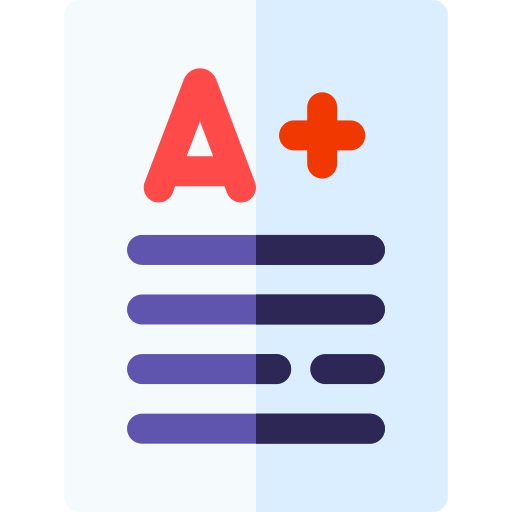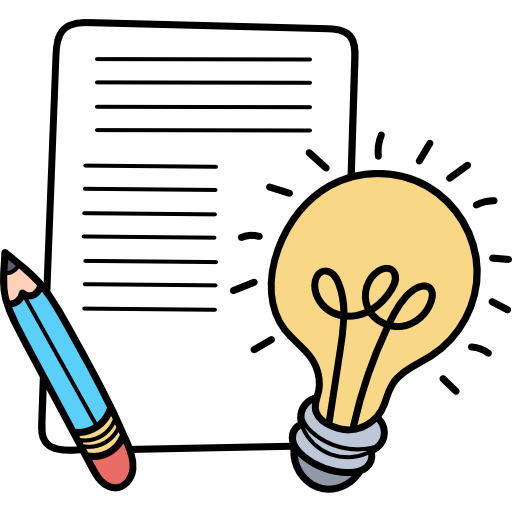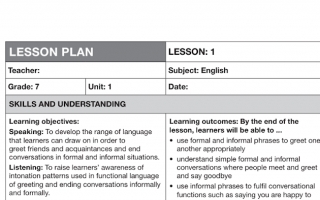دليل المعلم جسر الى النجاح اللغة الانكليزية الصف السابع
Standards / SLOs
(G7.3.1.1.1 Read a variety of genres (for and factual bulletins brcx:hures, advertisements, narrative recx•rts, information texts, formal letters and emails). in print or digital format. within a range of complexity appropriate for Grade 7; students interact with the text proficiently and independently using active reading strategies (for example, skirnming, scanning, discerning the o•ærall cornparing, contrasting evaluating text information in reation to preferences or pugxßes)
(G7.3.1.1.2 Read information from multiple print and digital sources (for example, and
factual bulletins, brochures, advertisements, narrative rerxyts, information texts, formal letters and emails) to Icx:ate an answer to a question or solve a problem; make straightforward inferences supported by evidence frorn the text
(G7.3.1.1.3 Determine a theme or central Of a text, and how it is conveyed through particular details demonstrate an understanding of texts by creating outlines. summaries or reports
Identify an author's gx) int Of view or in a text, and analyæ the author or resgx»nds to conflicting evidence or viewints
(G7.3.2.1.4 Identify structural features of media (for exarnple, newspapers. magazines, mline information) and use the features to obtain information
(G7.3.4.1.1 Use context to determQ the of words and phrases; analyse nuances in the rneaning of words with similar (Énotations
(G7.3.4.1.3 Analyse the meaning of words and phrases as they are uæd in a nonfiction text or in works of literature, including figurative. connotative and meaning; evaluate the of specific word choices on meaning and tone
(G7.3.4.1.4 Clarity word through the use Of definition. restatement or contrast
(G7.3.4.1.5 Consult general and reference materials (for example, dctionaries, glossariæ, thesauruws). in print and dgital, to find the pronunciation Of a word or determine or clarify its meaning or its part of
(G7.4.1.1-3 Summarise the main points of a read text using keywords from' the text as
Standards / SLOs
(G7.2.1.1.7 Pose and respond to questions related to the current discussion, incorporate others into the discussion
(G7.2.1.1.9 Discuss their opinions, ideas and individual perspectives within small or of peers and other English easily conversing English; summarise points of agrærnent and disagreement and justify views
(G7.3.1.1.1 Read a variety of genres (for example, and factual bulletins, brochures. advertisements, narrative rerx)rts, information texts, formal letters and emads print or digital format. within a range of complexity appropriate for Grade 7; students interact with the text proficiently and independently using active reading strategies (for example, skimming, scanning, discerning the o•ærall message, cornparing, contrasting and evaluating text inforrnation in relation to preferences or purposes)
(G7.3.1.1.2 Read information from multiple print and digital sources (for example, and factual recounts, bulletins, brochures, advertisements, narrative regx»rts, information texts, formal letters and ernails) to answer to a question or solve a problemv; make straightforward inferences
supported by evidence frorn the text
(G7.3.1.1.3 Deterrnine a therne or central idea of a text, and how it is conveyed through particular details demonstrate an understanding Of texts by creating outlines, summaries or reports
(G7.3.2.1.2 Identify an author's point of view or pugxæ in a text, and analyæ how the author to conflicting evidence
G7.3.2.1.4 Identify structural features of ßK)pular media (for exarnple, newspapers, magazines, online information) and the to obtain
G7.3.4.1.1 l_Jse context to determine the meaning of words and phrases; analyse nuanæs in the rneaning of words with similar denotations
G7.3.4.1.3 Analyse the meaning of words and phrases as they are in a nonfiction text or in works of literature, including figurative, connotative and tæhnical meaning; evaluate tt•æ effusivenæs of word Choices on rne.aning and tone
G7.3.4.1.4 Clarify word meanings through the use of definition, exanvle, restatement or contrast
G7.3.4.1.5 Consult general and specialised reference materials (for example, dictionaries, glossaries, thesauruses), in print and digital, to find the pronunciation of a word or determine or clarify its prEise
meaning or its part Of
G7.4.1.1.3 Surnrnarise the main of a read text using keywords frorn the text as
Differentiation activities (Stretch)
I. Learners should give a more extended greeting and resvx»nse. including asking
after the health or similar. For example: morning How ure you Ioday ? Good morning I am well. Ihank you
Writing: Activity 3
I. Ask learners to write three sentences with question tags using the prompts given
Ensure that learners know what is required in the If necæssary, write up a sample on the tx»ard She / / school She will be at school today. t she
2. For learners needing stretch, ask them to write mth a vx»sitive and a negative version Of each sentence (for example: She at school today. "'ill she')
Ask them to discuss the difference the sentences with a partner. (Positive statement implies for a positive answer, negative staternent implies for a negative answer
3. Learners can read out their to a partner when they have finished, to check their answers and practise pronunciation
CORE
Feedback
Circulate around the class on progress. Try to listen to each pair reading out their sentences and correct pronunciation if necessary. If rx»ssible, collect in the written work for assessment and feedback
Writing: Activity 4
I. Ask learners to write with verbs. Check everyone understands the activity. Model one sentencX to get learners started, although they should think Of their own. For example: Should I do my homework tonight or at the
2. Learners can read out their to a partner when they have finished, to check their answers and practise pronunciation
CORE
Feedback
Circulate around the class on progress. Try to listen to each pair reading out their sentences and correct pronunciation if necessary. If Byssible, collect in the written work for assessment and feedback
Differentiation activiti 6 (Support)
I. an example Of each sentence and ask the learners to give their own examples
Differentiation activities (Stretch)
I. When they have finished writing the five sentences, ask the learners to go back and make each sentence more polite For example, use •may' or •could' instead Of 'can', or in an extra word the m-{xlal verb and the subject, and the main verb, for example: Formal question: Could I B)ssibly take a longer lunch break. Mr Khaan
I. Ask learners to circulate around the class (or talk to learners near them, if moving around the class is not practical), making informal and formal requests
2. Put some prompts up on the board to give them some ideas





